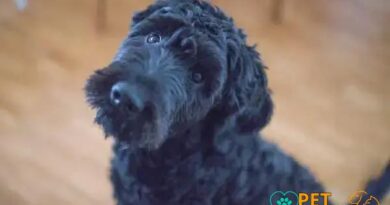What is fireworks anxiety in dogs
Understanding Fireworks Anxiety in Dogs
Fireworks anxiety in dogs is a common condition that affects many pets during celebrations such as New Year’s Eve or the Fourth of July. This anxiety is characterized by a dog’s fear of loud noises, particularly the sudden and unpredictable sounds of fireworks. Dogs may exhibit various signs of distress, including trembling, hiding, excessive barking, and attempts to escape. Understanding this condition is crucial for pet owners who want to help their furry friends cope with these stressful situations.
Signs and Symptoms of Fireworks Anxiety
The signs of fireworks anxiety can vary from one dog to another. Some dogs may become visibly agitated, pacing around the house, while others may seek comfort by hiding under furniture or in their owner’s lap. Common symptoms include panting, drooling, whining, and even destructive behavior as the dog tries to escape the noise. Recognizing these symptoms early can help owners take proactive measures to alleviate their pet’s anxiety.
Causes of Fireworks Anxiety in Dogs
The exact cause of fireworks anxiety in dogs is not fully understood, but several factors contribute to this condition. Genetics may play a role, as some breeds are more predisposed to anxiety than others. Additionally, a dog’s early experiences with loud noises can shape their response to fireworks. If a dog has had a negative experience with loud sounds in the past, they may be more likely to develop anxiety during fireworks displays.
Impact of Fireworks Anxiety on Dogs
Fireworks anxiety can have significant effects on a dog’s overall well-being. The stress caused by loud noises can lead to behavioral issues, such as increased aggression or fearfulness. Chronic anxiety can also impact a dog’s physical health, leading to issues such as gastrointestinal problems or weakened immune response. Therefore, addressing fireworks anxiety is essential for maintaining a dog’s quality of life.
Preventive Measures for Fireworks Anxiety
Preventing fireworks anxiety begins with preparation. Pet owners can create a safe space for their dogs, such as a quiet room with familiar toys and bedding. Using white noise machines or calming music can help drown out the sound of fireworks. Additionally, desensitization training, where dogs are gradually exposed to recorded sounds of fireworks at a low volume, can help them become accustomed to the noise over time.
Calming Techniques for Anxious Dogs
There are several calming techniques that pet owners can employ to help their dogs cope with fireworks anxiety. These include using anxiety wraps or vests that provide gentle pressure, which can have a calming effect. Natural remedies, such as pheromone diffusers or calming supplements, may also be beneficial. In some cases, consulting with a veterinarian about anti-anxiety medications can provide additional relief for severely affected dogs.
Behavioral Training for Fireworks Anxiety
Behavioral training is an effective way to address fireworks anxiety in dogs. Positive reinforcement techniques can help dogs associate the sound of fireworks with positive experiences, such as treats or playtime. Training sessions should be conducted in a calm environment, gradually introducing the sound of fireworks at a low volume while rewarding the dog for remaining calm. This approach can help build a dog’s confidence and reduce their fear of loud noises.
Seeking Professional Help for Severe Cases
In cases where a dog’s fireworks anxiety is severe and unmanageable, seeking professional help may be necessary. A certified animal behaviorist or a veterinarian specializing in behavior can provide tailored strategies and interventions. They may recommend a combination of behavioral modification techniques and medication to help the dog cope with their anxiety effectively.
Long-term Management of Fireworks Anxiety
Long-term management of fireworks anxiety involves ongoing support and understanding from pet owners. Regular training sessions, continued exposure to controlled loud noises, and the use of calming products can help maintain a dog’s progress. It’s essential for owners to remain patient and consistent in their approach, as overcoming anxiety can take time and effort.
Conclusion: Understanding and Supporting Your Dog
Understanding what fireworks anxiety in dogs entails is the first step toward providing the necessary support for your pet. By recognizing the signs, implementing preventive measures, and utilizing calming techniques, pet owners can help their dogs navigate the challenges posed by fireworks. With the right approach, it’s possible to reduce anxiety and create a more comfortable environment for our furry companions during noisy celebrations.




